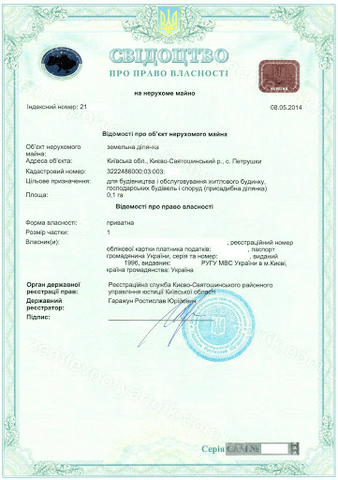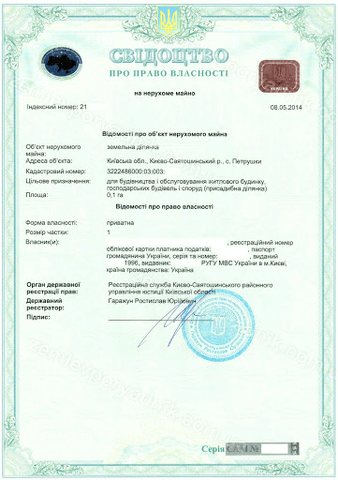Division of joint property of spouses: how to divide the house and the land on which it stands?
Cost of services:
Reviews of our Clients
Property acquired by spouses during marriage, according to the law, automatically becomes the subject of joint ownership rights and belongs to both the wife and the husband.
This legal provision is intended to ensure economic equality and protect the interests of both spouses. After divorce, there is a need to divide the common property.
The division of marital property can be executed through two primary methods:
- mutual agreement and contract signing;
- resorting to the court when consensus eludes the spouses, and conflicting issues persist concerning the future of jointly-owned real estate.
To preempt conflicts in property distribution, it is prudent to contemplate the legal status of personal and communal assets well in advance—ideally before marriage or, at the very least, during the marriage while the opportunity for agreement and compromise exists. For instance:
- Acquiring real estate in the names of both spouses, with specified ownership shares.
- Executing a prenuptial agreement that outlines predetermined conditions for the property rights of each spouse and procedures for securing consent from the other spouse in case of subsequent sales.
- Concluding a property division agreement.
- Entering into an agreement to terminate alimony rights in exchange for real estate.
These measures can forestall disputes and misunderstandings concerning property matters during marriage and in the event of its dissolution.
Consider a hypothetical scenario: spouses jointly own a private house on a plot of land. How should this property be divided? Is it necessary to separate the land and the building?
You may also like: Real Estate Gift Agreement: Rules and Procedures for Execution
Guidelines for the Division of Spousal Real Estate
Resorting to the court for property division is a protracted and costly process, but it provides a resolution when the parties cannot reach compromises independently.
Property division through a contractual agreement is the preferable route during marriage dissolution. It represents a mutual expression of the parties' will, streamlining the entire process in terms of both time and cost. However, not everyone contemplates property division during divorce proceedings, particularly when one party makes no claims and verbally asserts as much.
In practice, years, and even decades, may pass, and obtaining consent from a former spouse becomes necessary when selling real estate. This can be physically unattainable, for instance, if the individual has permanently relocated abroad, is untraceable, or simply refuses to respond, among other scenarios. Hence, it is advisable to determine the destiny of shared property by entering into relevant agreements at the time of divorce (legally dividing the property).
During the division of property subject to joint ownership rights between spouses, the portions allocated to the wife and husband are typically regarded as equal unless specified otherwise by their agreement or a prenuptial agreement.
Excluded from the shared joint ownership of spouses are:
- Property acquired before marriage: Items and assets obtained prior to entering into marriage remain the personal property of the individual.
- Property acquired through inheritance and by way of a donation agreement.
- Property acquired by one of the spouses using their personal funds (for example, if one of the spouses acquires property with funds gifted to them, that property remains their personal ownership).
- Items for individual use, including valuables, clothing, and personal hygiene items.
- Compensation received for damages or moral harm.
- Insurance payouts from personal insurance.
When a client approaches us with inquiries regarding the division and formalization of the joint property of spouses, our initial step involves conducting an audit of documents to delineate between shared property (acquired during the marriage) and individual property (gifted, inherited during the marriage, or purchased with personal funds). Essentially, we perform an inventory of the real estate owned by the spouses.
Following this, based on the situation, we present the client with several distribution options:
- Property distribution by allocating specific shares as whole units, accompanied by all necessary technical inspections, assessments, and the signing of an agreement.
- In cases where allocating shares is not feasible and with the client's agreement, we prepare the required document package for signing real estate exchange agreements. For instance, one party may take ownership of a vehicle, while the other takes ownership of real estate.
- If the spouses opt to sell all assets and divide the proceeds equally, we assist in formalizing the sale of real estate.
- If unauthorized construction is uncovered during the audit, we initiate its regularization before the division process.
- If spouses cannot reach an agreement on property distribution, we engage a lawyer to address distribution matters through legal proceedings.
You may also like: What Should Property Owners in Ukraine Do During the War While Abroad?
Which to Divide First: the Land Plot or the House?
In cases where there is established ownership of land, the assessment of the technical feasibility for property division occurs after confirming the potential for splitting the land plot.
Additionally, in situations involving the division or allocation of shares, during the technical inventory and the creation of a technical passport, a unique Identifier is assigned to the newly formed entity. This Identifier consists of data that remains unchanged throughout the entity's existence, similar to a tax identification number (TIN).
When obtaining a technical evaluation for potential division, followed by the issuance of technical passports for each distinct portion, it becomes technically impossible to assign an "identifier" to the object without cadastral numbers for the plots on which these separated entities are situated. Without such identifiers, the data cannot be entered into a unified construction system, and property rights cannot be registered. In essence, without dividing the land plot, the division of the object cannot proceed.
How to divide property when the land is privatized by one spouse, but the house is built with joint funds?
Specifically, during the period from February 8, 2011, to June 12, 2012, a land plot transferred to one of the spouses without compensation through privatization from state or communal ownership was considered the joint property of both spouses. However, before February 8, 2011, and after June 12, 2012, such a land plot is regarded as the personal private property of the receiving spouse. In other words, a land plot acquired through gratuitous privatization is mostly considered personal private property.
In practice, a common scenario arises where one spouse privatizes a land plot, and it is designated as personal private property. However, during the marriage, both spouses collectively build a house on it using joint funds. How should such property be divided?
The Supreme Court has provided clarification on this matter, stating that when one of the spouses lacks ownership rights to the land plot on which the joint house is situated, in such cases, that spouse can acquire a share of ownership rights to the land plot corresponding to their share in the overall property of the house.
You may also like: Division and Consolidation of Land Plots
Procedure for Dividing Real Estate Owned by Spouses
The initial step involves conducting an audit of documents to ascertain how you became co-owners of the property.
This could result from a joint purchase, inheritance, individual acquisition by one of the spouses, including purchases made before marriage, or privatization.
Subsequently, it is imperative to assess the technical feasibility of dividing the real estate object. This stage requires the involvement of relevant technical specialists.
Taking into account the value of the house, it becomes necessary to determine the proportions of ownership for each co-owner. These shares may differ based on financial contributions and other pertinent factors.
In an ideal scenario, the next step would involve the execution of division agreements among co-owners, outlining:
- The method of dividing the house;
- The allocation of specific parts or real estate items to each co-owner;
- The regulation of issues related to shared elements, such as walls, roofs, heating systems, etc.
Certainly, if both parties are in agreement, a simplified procedure for property division can be formalized through a contract.
After completing the division process, it is crucial to register ownership rights for each co-owner regarding the newly created objects resulting from the division.
The situation may become more intricate in cases where spouses disagree, necessitating resolution through legal proceedings in court.
Our team provides comprehensive real estate transaction support services, ensuring assistance in any scenario. Importantly, we offer the simplest and most effective solutions. Our services include:
- Auditing (inventory) of marital real estate.
- Engagement of experts for a preliminary analysis of the technical feasibility of allocating shares.
- Preparation of real estate for division (completion of all legal procedures for property registration, commissioning, document collection, archival work, preparation of technical reports, onsite boundary demarcation, assignment of cadastral numbers, preparation of technical passports, etc.).
- Document preparation for contract conclusion.
- Proofreading contracts and notarial documents.
- Legal support for contract execution at the notary office with property rights registration for the allocated share.
To inquire about the cost of our services, please consult with our specialists.
The cost of services for standard real estate operations can be found here.






